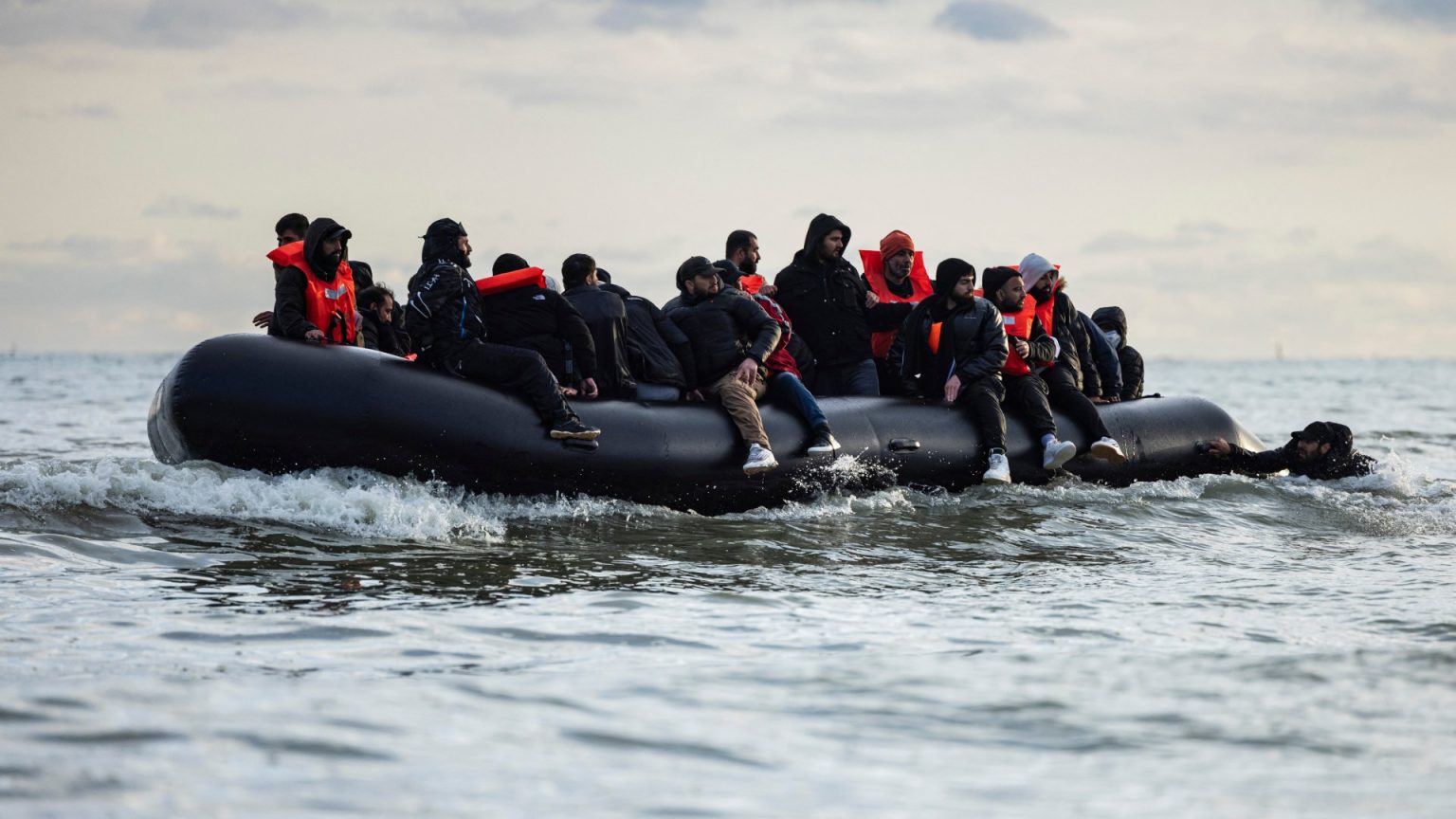The influx of migrants crossing the English Channel in small boats has reached a new winter peak, with a record 609 individuals making the perilous journey on a single day in February. This surpasses the previous daily high for December, January, or February since the crisis began in 2018. The migrants, traveling in nine dinghies, braved the frigid conditions, highlighting the ongoing challenges faced by authorities in managing this complex situation. The total number of crossings in 2024 has already exceeded 34,000, a significant 19% increase compared to the same period last year, raising concerns about the effectiveness of current border control measures.
The escalating numbers have intensified the political debate surrounding immigration policy. The opposition Conservative Party has criticized the Labour government for what they perceive as a failure to control the borders, attributing the surge in crossings to the cancellation of the controversial Rwanda deportation plan. They argue that the lack of a credible deterrent encourages migrants to attempt the dangerous crossing. Conservative Shadow Home Secretary Chris Philip labeled the record number of arrivals a “day of shame for Labour,” asserting that the Rwanda plan, had it been implemented, would have effectively dissuaded these crossings.
The Labour Party, while acknowledging the need to reduce the number of crossings, defends its approach by emphasizing the establishment of the new Border Security Command, aimed at disrupting criminal gangs facilitating the crossings. They also point to increased international collaboration as a key strategy for managing the situation. Labour leader Keir Starmer’s spokesperson reiterated the party’s commitment to addressing the issue, highlighting the ongoing efforts to dismantle smuggling networks. However, the Conservatives continue to accuse Labour of conducting an “open borders experiment” by allowing both legal and illegal migration to increase.
Downing Street, the Prime Minister’s office, has responded to the criticism by framing the current situation as an inherited problem from the previous Conservative administration. They emphasize their comprehensive strategy to address the asylum system, which includes dismantling smuggling gangs through the newly formed Border Security Command, enhancing international cooperation to tackle the issue at its source, and increasing the return of individuals deemed ineligible for asylum. This multi-pronged approach aims to bring greater order and control to the asylum system.
The debate underscores the deep divisions within British politics regarding immigration control. The Conservative Party advocates for stricter measures, including the contentious Rwanda plan, which has faced legal challenges and criticism from human rights organizations. Labour, on the other hand, emphasizes a more comprehensive approach involving international collaboration and tackling organized crime. The escalating numbers of small boat arrivals exert pressure on both parties to find effective and humane solutions to manage the crisis.
The continued surge in small boat crossings presents a significant challenge for the UK government. The humanitarian concerns surrounding the safety of migrants undertaking the perilous journey are compounded by the political ramifications of the issue. The opposing viewpoints of the Labour and Conservative parties highlight the complexities of finding a solution that balances border security with humanitarian considerations. As the numbers continue to rise, the pressure mounts to develop a sustainable and effective strategy that addresses the root causes of the crisis and ensures the safety and well-being of those seeking refuge, while also maintaining the integrity of the UK’s borders.










